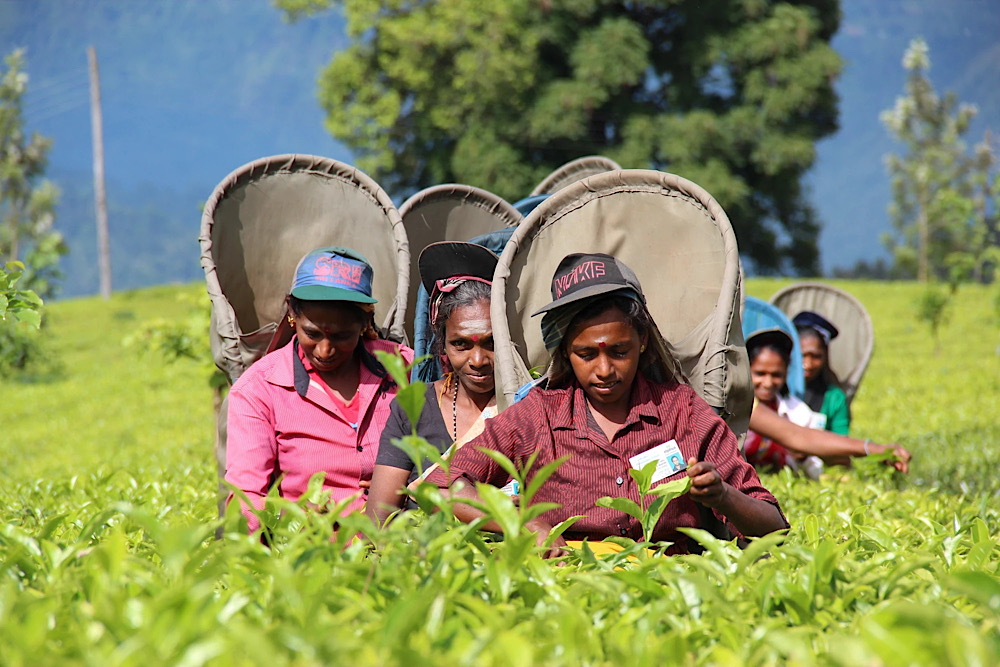Colombo: The carbon market, a new million-dollar investment frontier
Growth linked to increased global demand, with new opportunities for the country to monetise its natural resources responsibly. For environmentalists, mangroves could yield ‘over a million carbon credits per year’. A regulatory framework is being developed to distribute the proceeds from emissions trading to local communities.
Colombo (AsiaNews) - The carbon market, an emerging reality that is becoming increasingly valuable in Sri Lanka, to the point of becoming a “leading investment frontier”, has recently attracted hundreds of millions of dollars in new financing.
The so-called ‘carbon market’ is a system that allows companies and governments to buy and sell carbon credits, i.e. permits to emit greenhouse gases, with the aim of reducing global emissions and mitigating climate change. Behind the boom is a parallel increase in global demand for high-quality carbon credits, creating new opportunities for the country to monetise its natural resources in a responsible manner.
According to senior officials at the Ministry of Environment, “thanks to the growing global demand for high-quality carbon credits, Sri Lanka can monetise its natural resources in a responsible manner”. Currently, carbon markets, the note continues, represent ‘a billion-dollar industry, and Sri Lanka cannot afford to remain on the sidelines.
With credible monitoring and scientific bases, we can transform forests, wetlands and renewable energy projects into sustainable financial resources.’ The ministry's goal, it concludes, is to ‘generate 0-300 million per year within a decade. During the first five years, over 0 million in climate finance investments could flow into reforestation, mangrove, renewable energy and industrial decarbonisation projects.’
Ministry officials are currently working on creating a science-based and internationally aligned carbon market architecture. Investors will therefore benefit from clear guidelines, combined with a reporting standard and a system free from manipulation. This is the way, experts warn, in which such a market can function without obstacles. To meet global standards, a national registry, verification guidelines and project methodologies are also being considered.
When interviewed by AsiaNews, environmentalists Manohari Wijewardana and Udara Dissanayaka explained that "Sri Lanka's mangrove ecosystems are among the densest in South Asia, covering approximately 16,615 hectares; the largest areas are mainly located in the regions of Puttalam-Kalpitiya (north-western province) and Batticaloa (eastern province), in association with the estuaries" of waterways.
The researchers warn that these areas are expected to generate 'over one million carbon credits per year, while new forest management and restoration programmes are being developed for long-term credit issuance. As nature-based solutions offer ecological and economic benefits, Sri Lanka is on track to restore 10,000 hectares of mangroves by 2030, they conclude.
In February 2024, as part of the UN Decade on Ecosystem Restoration led by the United Nations Environment Programme (UNEP) and the Food and Agriculture Organisation (FAO), a large-scale ecosystem restoration initiative was introduced.
The project, one of seven defined as “pilot” by the United Nations, aimed to increase mangrove coverage on the island by more than 50%. Once operational, this programme will give further impetus to Sri Lanka's goal of reaching the “cutting-edge investment frontier”, researchers Manohari and Udara pointed out.
Scholars Sampath Amarakoon and Randesh Mendis believe that “Sri Lanka is emerging as a carbon market and that the government is actively developing regulations and a national registry to monetise natural resources, particularly forests and mangroves”.
The hope, they continue, is to ‘attract significant foreign investment to generate annual revenues that could fund reforestation, renewable energy and decarbonisation projects. To achieve this goal, they warn, it is necessary to establish credible monitoring, including verification guidelines, and a national registry to ensure that its carbon credits are accepted internationally.’
In the meantime, the island nation's extraordinary blue carbon ecosystems offer a powerful tool for climate mitigation and adaptation, providing abundant co-benefits essential to the well-being of people and nature. It is therefore essential to prioritise social equity by ensuring strong governance. It is also necessary to manage financing efforts prudently, placing the interests of local communities and ecosystems at the centre.
Finally, a regulatory framework is currently being developed to ensure that revenues from carbon trading are distributed to local communities involved in conservation activities, such as those protecting mangroves. The country needs to obtain certification from international agencies before engaging in carbon trading.
11/08/2017 20:05







.png)










